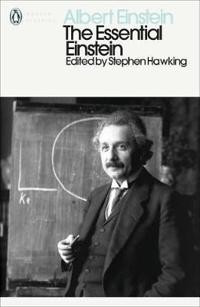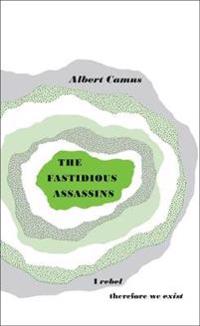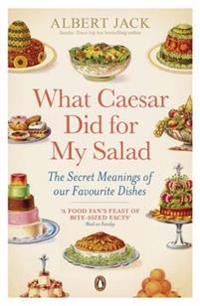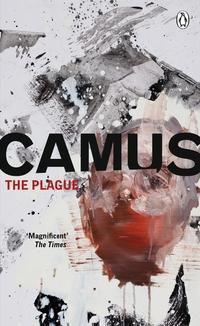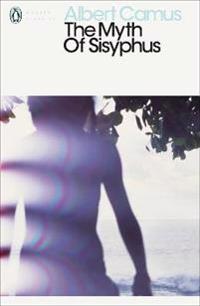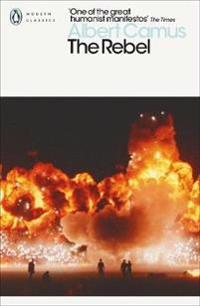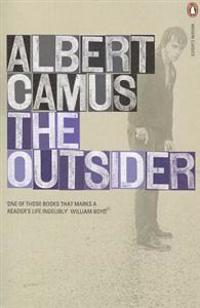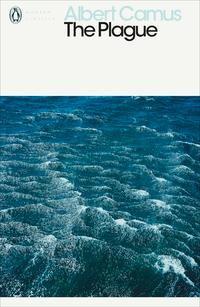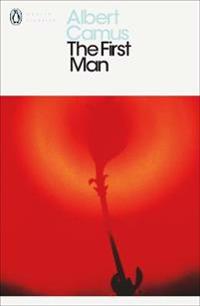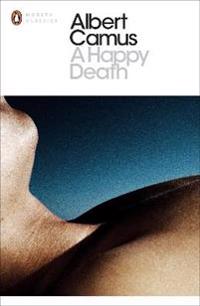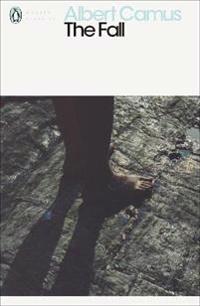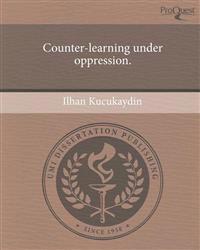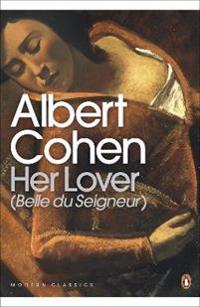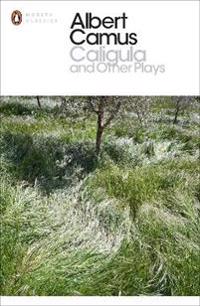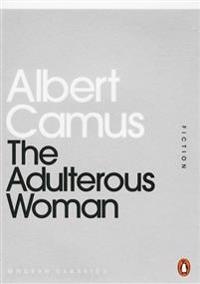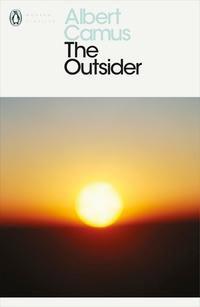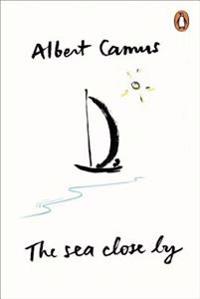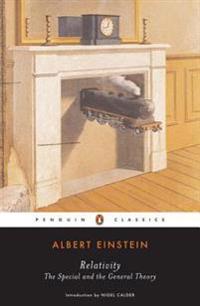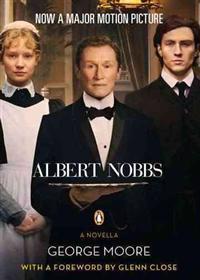The Essential Einstein (Storpocket)
avAlbert Einstein
ISBN: 9780141034621 - UTGIVEN: 200809Albert Einstein changed the way physicists view the universe - and transformed the way we all see the world. Just over one hundred years ago, his Theory of Relativity stunned scientists, but today it is integral to modern thought as the most important scientific discovery of the twentieth century. I[...]
The Fastidious Assassins (Pocket)
avAlbert Camus
ISBN: 9780141036625 - UTGIVEN: 2008-08A daring critique of communism and how it had gone wrong behind the Iron Curtain, Camus' essay examines the revolutions in France and Russia, and argues that since they were both guilty of producing tyranny and corruption, hope for the future lies only in revolt without revolution. Throughout histor[...]
What Caesar Did for My Salad (Häftad)
avAlbert Jack
ISBN: 9780141043449 - UTGIVEN: 2012-08Did you know that the Cornish pasty was invented to protect tin miners from arsenic poisoning, or that the word 'salary' comes from Roman soldiers being paid their wages in salt? Why do we eat goose (or turkey) at Christmas? Is the Scotch egg actually from Scotland and what did some retired crusader[...]
The Plague (Häftad)
avAlbert Camus
ISBN: 9780141049236 - UTGIVEN: 201007'On the morning of April 16, Dr Rieux emerged from his consulting-room and came across a dead rat in the middle of the landing'. It starts with the rats. Vomiting blood, they die in their hundreds, then in their thousands. When the rats are all gone, the citizens begin to fall sick. Like the rats, t[...]
The Myth of Sisyphus (Storpocket)
avAlbert Camus
ISBN: 9780141182001 - UTGIVEN: 200003Written during the bleakest days of the Second World War, this volume argues for an acceptance of reality that encompasses revolt, passion and, above all, liberty. It also contains several other essays, including lyrical evocations of the sunlit cities of Algiers and Oran, and the settings of other [...]
The Rebel (Storpocket)
avAlbert Camus
ISBN: 9780141182018 - UTGIVEN: 200012"The Rebel" is Camus's attempt to understand the time 'I live in' and a brilliant essay on the nature of human revolt. Published in 1951, it makes a daring critique of communism, how it had gone wrong behind the Iron Curtain, and the resulting totalitarian regimes. It questions two events held sacre[...]
The Outsider (Storpocket)
avAlbert Camus
ISBN: 9780141182506 - UTGIVEN: 200002A peerless work of philosophical fiction that is as shocking today as when it was first published, the "Penguin Modern Classics" edition of Albert Camus' "The Outsider" is translated by Joseph Laredo. Meursault will not pretend. After the death of his mother, everyone is shocked when he shows no sad[...]
The Plague (Storpocket)
avAlbert Camus
ISBN: 9780141185132 - UTGIVEN: 200212The Plague is Albert Camus' world-renowned fable of fear and courage. The townspeople of Oran are in the grip of a deadly plague, which condemns its victims to a swift and horrifying death. Fear, isolation and claustrophobia follow as they are forced into quarantine. Each person responds in their ow[...]
The First Man (Storpocket)
avAlbert Camus
ISBN: 9780141185231 - UTGIVEN: 200112The unfinished manuscript of "The First Man" was discovered in the wreckage of car accident in which Camus died in 1960. Although it was not published for over thirty years, it was an instant bestseller when it finally appeared in 1994. The first man' is Jacques Cormery, whose poverty-stricken child[...]
A Happy Death (Storpocket)
avAlbert Camus
ISBN: 9780141186580 - UTGIVEN: 200202Is it possible to die a happy death? This is the central question of Camus' astonishing early novel, published posthumously and greeted as a major literary event. It tells the story of a young Algerian, Mersault, who defies society's rules by committing a murder and escaping punishment, then experim[...]
The Fall (Storpocket)
avAlbert Camus
ISBN: 9780141187945 - UTGIVEN: 200607Jean-Baptiste Clamence is a soul in turmoil. Over several drunken nights he regales a chance acquaintance with his story. From this successful former lawyer and seemingly model citizen a compelling, self-loathing catalogue of guilt, hypocrisy and alienation pours forth. "The Fall" (1956) is a brilli[...]
Exile and the Kingdom (Storpocket)
avAlbert Camus
ISBN: 9780141188256 - UTGIVEN: 2006-07The stories of "Exile and the Kingdom" explore the dilemma of being an outsider - even in one's own country - and of allegiance. With intense power and lyricism, Camus evokes beautiful but harsh landscapes, whether the shimmering deserts of his native Algeria or the wild, mysterious jungles of Brazi[...]
Her Lover (Storpocket)
avAlbert Cohen
ISBN: 9780141188300 - UTGIVEN: 2005-11Handsome, worldly and intelligent, Solal holds a position of enviable power in 1930s Geneva. But as Under-Secretary-General of the League of Nations, he has become bitterly disillusioned by international affairs and the self-serving people who surround him. His one hope for redemption is through lov[...]
Caligula and Other Plays (Storpocket)
avAlbert Camus, Stuart Gilbert
ISBN: 9780141188706 - UTGIVEN: 200607"Caligula" reveals some aspects of the existential notion of the absurd' by portraying an emperor so mighty and so desperate in his search for freedom that he inevitably destroys gods, men and himself. The dramatic impetus of "Cross Purpose", however, comes from the tension between consent to and re[...]
The Adulterous Woman (Häftad)
avAlbert Camus
ISBN: 9780141195841 - UTGIVEN: 201102She was waiting, but she didn't know for what. She was aware only of her solitude, and of the penetrating cold, and of a greater weight in the region of her heart.' Camus' writing confronts the great philosophical dilemmas of our time with piercing clarity. These three powerful and evocative stories[...]
The Outsider (Häftad)
avAlbert Camus
ISBN: 9780141198064 - UTGIVEN: 2013-10'My mother died today. Or maybe yesterday, I don't know.' In The Outsider (1942), his classic existentialist novel, Camus explores the alienation of an individual who refuses to conform to social norms. Meursault, his anti-hero, will not lie. When his mother dies, he refuses to show his emotions sim[...]
The Outsider (Inbunden)
avAlbert Camus
ISBN: 9780141389585 - UTGIVEN: 2012-09'My mother died today. Or maybe yesterday, I don't know.' Sandra Smith's new translation, based on close listening to a recording of Camus reading his work aloud on French radio in 1954, sensitively renders the subtleties and dream-like atmosphere of L'Etranger. In "The Outsider" (1942), his classic[...]
Relativity: The Special and the General Theory (Häftad)
avAlbert Einstein, Nigel Calder
ISBN: 9780143039822 - UTGIVEN: 200607According to Einstein himself, this book is intended "to give an exact insight into the theory of Relativity to those readers who, from a general scientific and philosophical point of view, are interested in the theory, but who are not conversant with the mathematical apparatus of theoretical physic[...]
Albert Nobbs: A Novella (Inbunden)
avGeorge Moore, Glenn Close
ISBN: 9780143122524 - UTGIVEN: 201112Long out of print, George Moore's classic novella returns just in time for the major motion picture starring Glenn Close as a woman disguised as a man in nineteenth-century Ireland.Set in a posh hotel in nineteenth-century Dublin, Albert Nobbs is the story of an unassuming waiter hiding a shocking s[...]
The House Of Bondage (Inbunden)
avOctavia V. Rogers Albert
ISBN: 9780195052633 - UTGIVEN: 1988-07-28Living in Time: The Poetry of C. Day Lewis (Inbunden)
avAlbert Gelpi
ISBN: 9780195098631 - UTGIVEN: 1997-10-01Figurative Language and Thought (Inbunden)
avJr. Raymond W. Gibbs, Mark Turner, Albert N. Katz, Cristina Cacciari
ISBN: 9780195109627 - UTGIVEN: 1998-11-01Physiology of Respiration (Pocket)
avMichael P. Hlastala, Albert J. Berger
ISBN: 9780195138474 - UTGIVEN: 2001-03-01Canaan Land: A Religious History of African Americans (Pocket)
avAlbert J. Raboteau
ISBN: 9780195145854 - UTGIVEN: 2001-03-22

